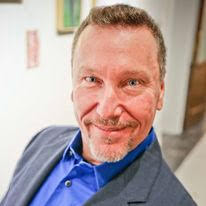reSOARces helping people with disabilities, special needs
Published 8:02 am Saturday, June 5, 2021

- From left: Melody Wray, program coordinator for reSOARces; Alex Grigsby, community guide for reSOARces; and Tina Scott, owner of A1 Case Management and founder of reSOARces. - Photo by Olivia Mohr
Organizations feeling impact of COVID-19
A1 Case Management and reSOARces, a companion nonprofit organization that is built upon the basis of a self-directed model, which involves people with disabilities and special needs choosing their caregivers, have been feeling the impacts of COVID-19 on their staffing, the well-being of their participants and their development as organizations.
Tina Scott, who purchased A1 Case Management in 2012 and founded reSOARces in 2019, said reSOARces didn’t receive its nonprofit status until February 2020, right before pandemic shutdowns. The timing has impacted reSOARces’ funding — it wasn’t able to do as much fundraising as anticipated — but Scott has organized for a set of Medicaid funds A1 receives through a waiver to reSOARces to get it started.
Scott explained a key difference between A1 and reSOARces, other than the fact one is a nonprofit. She said as a case management agency, A1 works with close to 90 agencies across Kentucky, providing a more traditional model of services where agencies will hire someone and send them to a house as a caregiver to someone with disabilities or special needs. But reSOARces seeks to empower participants by giving them access to direct support professionals through a self-directed model, where participants can interview and choose their caregiver. This can be especially beneficial to participants by connecting them with someone they’ve gotten to know. In a more traditional setting, a participant could theoretically be bathed by a complete stranger, for example, which could make a participant uncomfortable.
Trending
“What we found is that while the directed model, where the person gets to choose, is so empowering, it means that there’s extra work involved on them as an employer and on our case manager as the person trying to help support them in it,” Scott said. “So reSOARces — I founded it to try to bridge those gaps of support. So really, the goal was that anyone who wanted to direct their services could because then they could have a support system doing that.”
Later, Scott said, “Our industry is so different, and our people are depending on someone to get them out of bed in the morning to give them their bath, to give them their medications they need because they have epilepsy, and in the traditional model sometimes an agency will just send somebody out.”
On A1’s side, COVID-19 has impacted “every facet” of its operations, Scott said. With case managers, they mainly work from home anyways, but things have changed dramatically for participants receiving services.
“We support people in getting integrated into the community and living a good life, a life that is connected, and in the midst of this COVID year, people felt isolated,” Scott said. “A lot of our participants were underneath that long-term care, healthy-at-home. Leaving the house was last-resort. We still have people that haven’t left the house in over a year. So that’s been heartbreaking.”
For example, especially if case managers are working with someone with autism and have been making strides with them in terms of their interactions, after a year of extremely limited outside interactions, it’s like starting all over again with that person, so A1 and reSOARces have seen some regression.
There have been some positives come out of the pandemic, despite hardships, Scott said. Everyone who wanted the vaccine has gotten it, with the exception of a few homebound people A1 is still working on getting the vaccine to. Also, A1 was able to utilize federal relief funds to give all participants access to tablets and internet, which has been beneficial particularly to rural areas which may struggle with access.
Trending
In response to COVID-19, A1 expected a shortage of direct support professionals, or DSPs, for participants, so it partnered with reSOARces to provide those services to people with disabilities under the participant-directed services, or PDS, model.
Melody Wray, program coordinator for reSOARces, said A1 has been a pilot agency for reSOARces in its early stages. She said all of A1’s “stresses” “bled over” into reSOARces because they had DSPs no longer showing up to work if they were quarantining or not feeling well, which could create a difficult position for a participant with epilepsy or one who could not get out of bed, for example.
“There’s already a high turnover rate,” Wray said. “That turnover rate was increased because of COVID, and we definitely were kind of flying by the seat of our pants, just trying to fill every hole and every spot that needed to be filled.”
Also, reSOARces is not funded by Medicaid, so it wasn’t able to utilize federal COVID-19 relief funds like A1 was. However, A1 was able to donate funds to reSOARces for Wray’s salary and other expenses.
Wray said reSOARces is still feeling the “waves” of COVID-19. It’s always an “influx,” whether reSOARces is looking for people to hire or training staff, where it is currently spending much of its time, since there is staff turnover. Even before COVID-19, high turnover came with the nature of the job, Wray said.
Scott said A1 has been able to utilize enhanced pay rates so workers could be paid for their overtime hours. This was because workers were working “such crazy” hours. For example, there could be issues in the middle of the night, participants who didn’t understand why they had to stay inside their homes during the pandemic, and some times during which caregivers needed to quarantine with the families or individuals they served if someone contracted COVID-19.
“Thankfully, most of the people that work with our participants, the ones that are still with them, this is more than a job to them — that’s someone they care about,” Scott said.
Scott said the organizations have been making efforts to keep both workers and participants connected. They’ve had Zoom meet-and-greets, and a local nonprofit organization called iMoms, a group out of Indian Hills Christian Church that is group of mothers who often help with A1’s Christmas program, had their children write letters for participants. Burke’s Bakery also put together care packages for participants, which A1 mailed out. They also hosted a talent show via Zoom, which Scott described as “one of the highlights of the year.” Especially because several families have needed food assistance, Scott said A1 also dropped off food at participants’ porches and provided other services. Scott also sent packages to people who work for her around the state.
Scott and Wray are hopeful looking into the future. Wray said reSOARces has a vision, once it has the capacity to do so, to have team building take place between participants of the Medicaid waiver and DSPs to help decrease turnover and improve overall experience. Also, they want to establish a website where if they are hiring or searching for jobs, they can easily be found, and it would also serve as a platform for DSPs to connect with each other.
“Especially with the self-directed model, when they choose people, it’s more of a private situation, so it can be easy for direct support professionals to feel isolated when it’s just them showing up and taking care of someone,” Wray said.
Scott said especially given the pandemic situation, the organizations have been addressing mental health among participants. They’ve been having people complete mental health assessments monthly and communicating at least every two weeks with participants to be sure their needs were being met.
For addressing physical needs, caregivers used personal protective equipment and washed their hands frequently if they needed to directly provide services in person to participants, and with those who needed less hands-on care, they could refill their medication boxes through the windows of their homes, for example, or speak to them over the phone, depending on their needs.
Especially since vaccinations have been distributed and are continuing to be, things are slowly returning to normal for participants, Scott said. They’ve been able to make trips to their favorite restaurants and to grocery stores, and if they haven’t been able to see their family members in person, many of them have at least been able to see them from a distance in their front yards.






